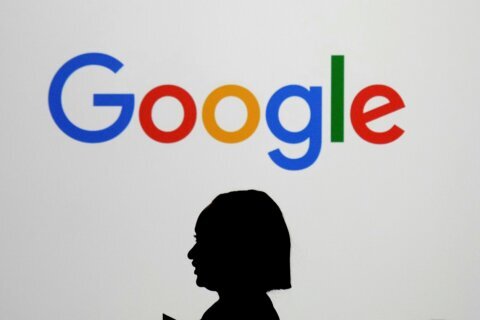WASHINGTON — Facebook has come under fire this week following a New York Times’ investigation into what the company knew about Russian meddling, data sharing and fake news, and how its leaders went on the attack after each scandal. And just before the Thanksgiving holiday, Facebook acknowledged it hired a Washington-based lobbying company to push negative stories about the companies’ critics.
As tech giants like Facebook and Google face increased scrutiny over the power they have on consumers and the spread of misinformation, some, like journalist Bob Sullivan, argue that fake news has become a health crisis.
“I think that fake news, melodramatic headlines, exaggeration has all become the perfect drug that’s delivered over the internet,” Sullivan told WTOP. “Imagine the horror of a drug dealer who had an app and it knew precisely when someone who was in rehab was close to a relapse, was lying on their bathroom floor struggling at three in the morning, and could appear right away and say ‘Hey, click here you’ll feel better.’ That’s what fake news has become for us.”
Sullivan characterizes fake news as an addiction, one that platforms like Facebook and Google are fueling by targeting vulnerable people.
“We’ve known for some time that technology is causing addictive-like behaviors and I think that’s obvious when you look at someone who’s staring blankly at their phone or staying up all hours of the night just playing around on the internet,” Sullivan said. ” … I think it’s much more than a disinformation problem. I think it is a health crisis and I think we need to attack it as such.”
If fake news is rooted in a health crisis, then Sullivan says we need to solve misinformation the same way we treat addiction.
“We go right to the source like we do in the drug problem,” Sullivan said. “Forget the street pushers. You know it’s not the people who write the fake news headlines. It’s the platforms: Facebook and Google in particular.”
And the source, in this case, is Facebook, Google and even YouTube’s algorithms, which promote the most-shared content but can’t discern between what’s factual and what’s harmful.
For instance, YouTube’s algorithm that recommends videos to its users in an effort to get them to spend as much time on the site as possible has been found to push conspiracy-theory videos by the hundreds of millions. Most visibly, YouTube has prominently featured videos asserting that the Earth is flat and that mass shooting survivors, especially those from the school shooting in Parkland, Florida, are paid actors.
YouTube’s problem was so pervasive that the company recently cracked down on videos from some prominent far-right conspiracy theorists.
“Their algorithms are designed to find people who are vulnerable to conspiracy theories, show them this video about flat Earth, so the immediate one at the top right away is for Facebook and Google to stop with the surveillance marketing and to stop attacking people who are vulnerable with this crap,” Sullivan said. “It’s their problem. They created it. It’s theirs to fix.”
While Sullivan contends that users do bear some responsibility in how they use these platforms, he says tech companies are mainly to blame for fake news.
“I believe in personal responsibility too, but Google is in a position where they have spent billions and billions of dollars researching precisely how to do this to people,” Sullivan said. “They weren’t trying to turn people into flat-Earthers, they were just trying to make money. But this is an obvious by-product of that strategy. They’ve hacked us as consumers. They bear a much bigger portion of the responsibility than the victims here who are getting fooled by all of this stuff.”
At the same time, some, including President Trump, argue that the media is creating and spreading fake news, causing political divisions. But Sullivan says the country’s divisiveness is only one part of the bigger picture. The addiction behind fake news, and the companies fueling it, are the root of the problem, according to Sullivan.
“I mean, it begins with angry politics and it begins with the divisions that we talk about all of the time in America, but I really think the fuel, the energy behind it, is much more in this addiction land,” Sullivan said.
And while tech companies have made public apologies and changes, Sullivan argues that it isn’t enough.
“They should’ve seen it coming,” Sullivan said. “A great Washington Post story this week: they had this timeline of apologies from Mark Zuckerberg through the years. So he’s been apologizing long enough. He should have actually done something instead of apologized.”
WTOP’s Dimitri Sotis contributed to this report.







